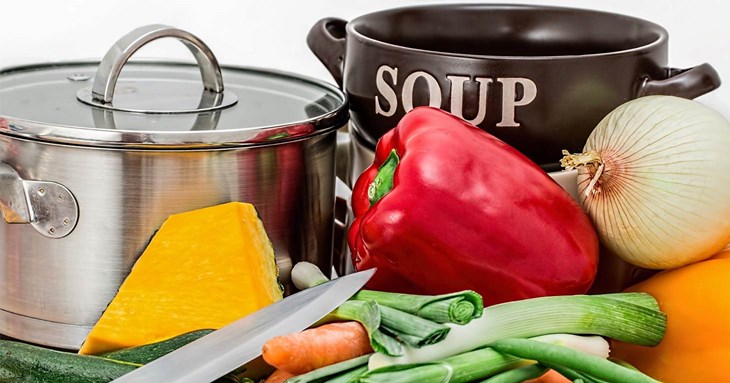Food waste is a big problem
Published: 5 March 2021

In his regular feature, Denis the Dustcart talks about food waste being a big problem. 1-7 March, is the UK’s first ever Food Waste Action Week.
You can follow Denis on his Facebook page to keep up with information about Recycling issues.
Food waste is a big problem. It’s likely that most people reading this blog will know this. Many will have heard it said.
You may even be aware that this week, 1-7 March, is the UK’s first ever Food Waste Action Week.
It turns out, however, that only 39% of people in the UK actually understand just how food waste is such a problem. More than 60% of us don’t make the link between food waste and climate breakdown.
According to the lntergovernmental Panel on Climate Change (IPCC), food waste ‘caused between 8 and 10% of the emissions of the gases responsible for global warming in the period 2010-2016’.
Climate breakdown, of course, means less food will be able to be grown in future. The earth won’t be able to support the yields demanded by the human population. Nutrition will fall; prices will rise; poverty will increase; more people will go hungry.
In ‘The State of Food Security and Nutrition in the World’, the UN reports that nearly 9% of the world’s population is hungry. Many of these people live in poorer countries where the majority of the world’s food is grown – countries on the front lines of climate breakdown, yet whose contribution to the problem is significantly less than that of countries in the industrialised north.
In making the connection between food waste and the health of our climate, many people will hold supermarkets and other food vendors primarily responsible. Most will be surprised to learn that 70% of food wasted in the UK actually happens at home.
Of the 9.5 million tonnes of food that gets wasted every year in the UK, 6.6 million tonnes is food we’ve bought into our homes.
In fact, in 2018-19 the number of people who strongly agreed that ‘everyone has a responsibility to minimise the food they waste’ dropped by 9%, according to Waste Resource Action Programme (WRAP).
While Exeter City Council has committed to introducing weekly food waste collections in the near future (and currently our food waste goes to Energy from Waste with the rest of the black bin rubbish, not to landfill), our messaging will remain the same: that it’s better not to waste food at all.
Of that 6.6 million tonnes of food households throw away each year, 4.5 million tonnes was edible.
The Food Waste Trends Survey 2019 by WRAP estimated that 18.4% of our milk goes un-drunk.
Considering the effect dairy production has on our climate (a study carried out by the Institute for Agriculture and Trade Policy (IATP) determined that the world’s 13 largest dairy companies together produced almost the same quantity of greenhouse gas emissions per year as the whole of the UK), the fact that nearly 1/5th of the UK’s milk is wasted is alarming.
Over a fifth of chicken (20.5%) goes uneaten. Nearly a quarter of potatoes (22.8%) get thrown away.
This is stuff that we can deal with. Simply by planning meals, only buying and cooking what we will actually eat, knowing what we have in our fridge, using up leftovers, freezing what we can when we need to and getting a little creative in the kitchen, we can help bring about real, positive change.
We can also save ourselves a packet. Love Food Hate Waste estimates that ‘the average family of four can save just over £60 per month by reducing their food waste’. That’s change of a different kind, but significant nonetheless.
So while it’s easy to feel overwhelmed these days - overwhelmed by the pace of our lives and by so much information about the damage we’re doing to our world – it’s good to know that we can make small adjustments to meaningfully help ourselves and our planet.
Planning our food will actually enable us take back some control. Check out the Love Food Hate Waste website for numerous recipes, hints, tips and advice on everything from understanding your dates to what you can freeze.
Knowing what we’ve got, how we can store it and how we can cook it so that we eat as much of it as possible – this saves us time and money, but it’s also one way we can each make a positive contribution to the world, its environment and all our futures.

